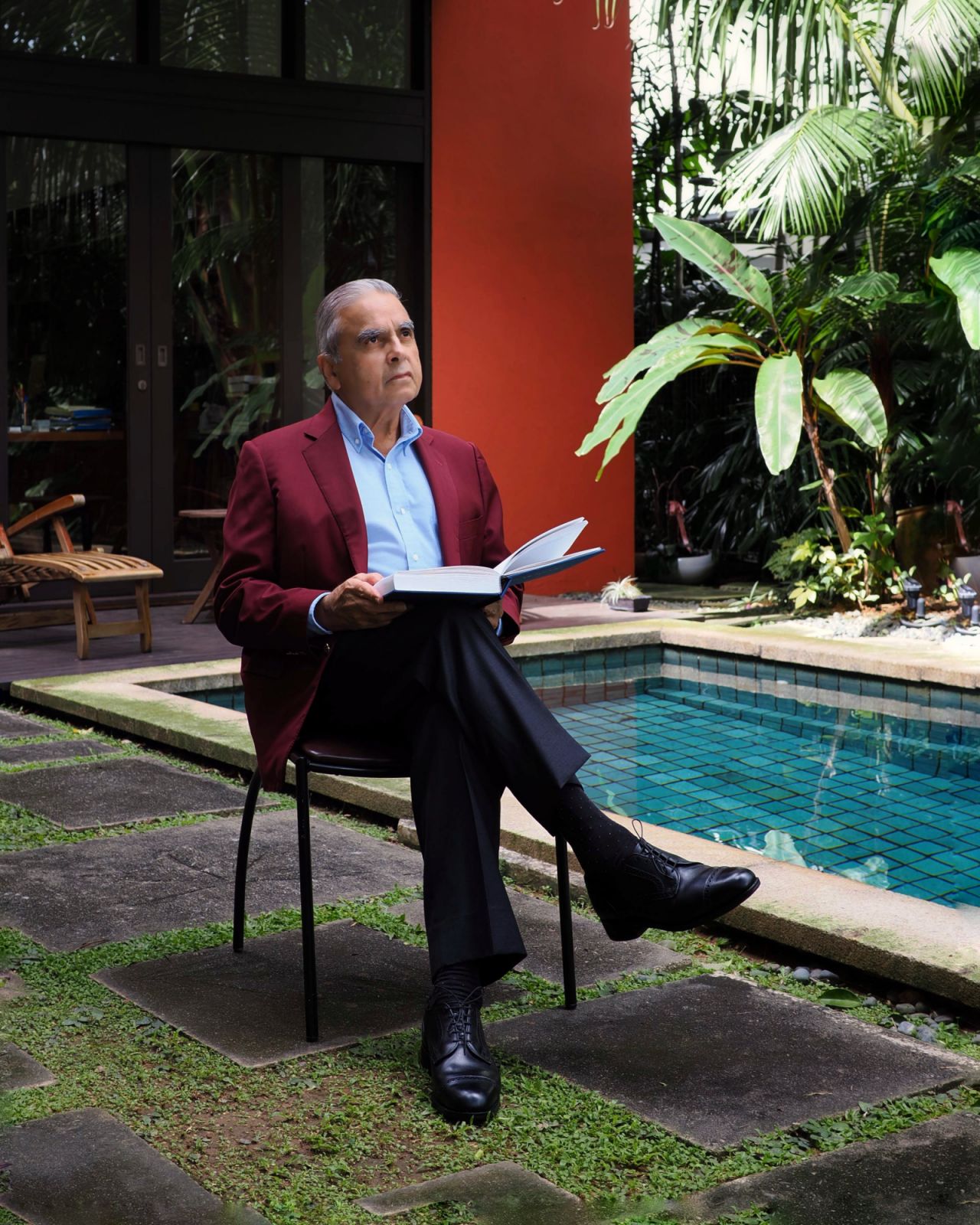Veteran diplomat and academic Kishore Mahbubani opens up about his upcoming memoir, taking risks, growing up poor, and the misconception that he is pro‑China
Kishore Mahbubani, one of Singapore’s most notable diplomats, academics and thought leaders, would like to dispel several misconceptions about him, chief among which is that he achieved what he has in part due to a privileged upbringing, and secondly, that he is a China apologist.
Regarding the first, the reality is that his early life is far from the assumption that many might have about this worldly, sophisticated and respected authority on geopolitics. “Most people assume that I had a comfortable middle‑class upbringing, with well‑educated parents who obviously prepared me to go to university, but I had the exact opposite experience. I came from a broken home. My father went to jail. We struggled to make ends meet,” he shares over a coffee in his home at Katong. “In fact, at the age of six months, the doctors told my mother, ‘Your son is gone’ because I had a severe case of diarrhoea, and then when I was six years old, I was put on a special feeding programme in school because I was undernourished. And I never even dreamt or thought of going to university because none of my relatives and none of my neighbours went to university.”

When he finished high school, Mahbubani says, “My mother sent me to work as a textile salesman, earning $150 a month, which was a lot of money for us. Rent back then was $17 a month. After a few months of working as a salesman, I got a letter inviting me to go for an interview for the President’s Scholarship. And then I got the President’s Scholarship. And it was going to give me $250 a month. It was more money than I’d make being a salesman, so my mother said, ‘You go to university.’ And that’s how I ended up in university, completely by accident. If I hadn’t received the scholarship, I’d never have gone to university.”
Bonded to the government because of the scholarship, Mahbubani joined Singapore’s Ministry of Foreign Affairs, where he served for more than three decades. It was a service marked by significant postings and leadership roles, including as Singapore’s ambassador to the United Nations (UN), where he served as president of the UN Security Council, and as permanent secretary of the Ministry. His tenure in diplomacy was recognised by the Singapore Government with the Public Administration Medal (Gold) in 1998, highlighting his exceptional contributions.






